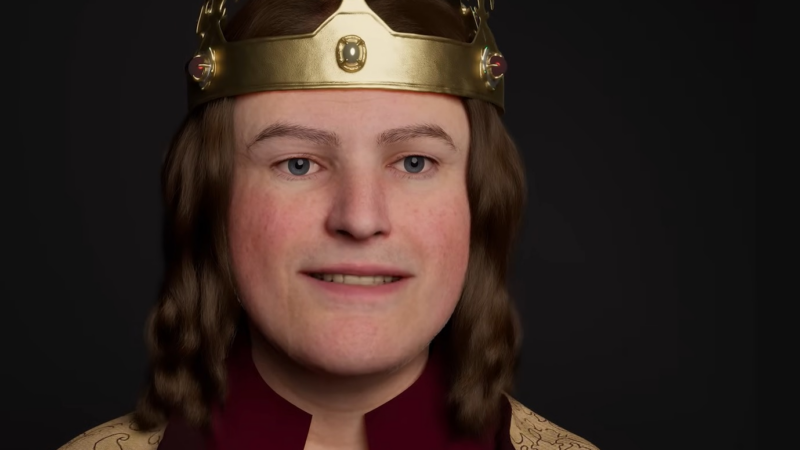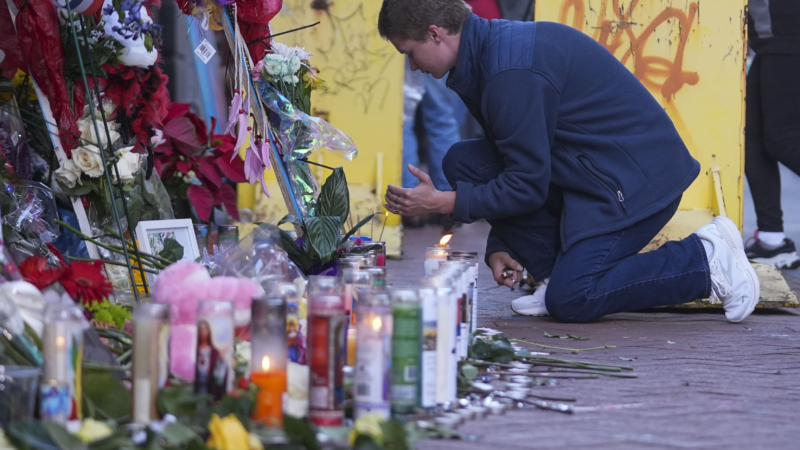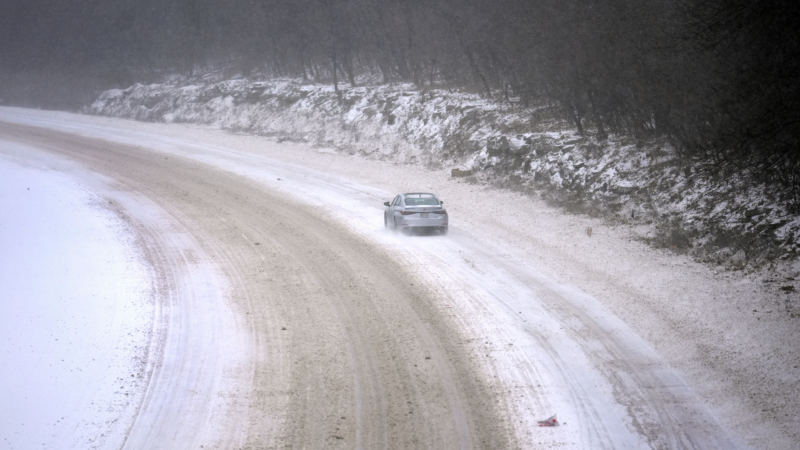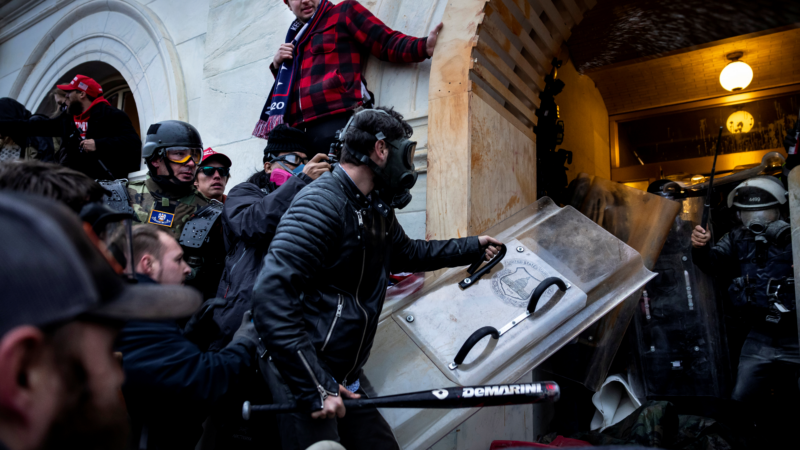How do you re-create the voice of a 15th century king? Dig up his skeleton
Yvonne Morley-Chisholm was on an annual retreat in England in 2014 when she had something of a eureka moment.
“We were meeting in the city of Leicester, and I thought, ‘Leicester, Leicester — oh, didn’t they just find that guy under a car park?’ ” she told NPR.
That guy she’s referencing is Richard III, the English king from the late 15th century who is mostly known these days as one of Shakespeare’s most iconic villains.
His skeleton had been found two years earlier, buried under a parking lot. It was an exciting enough discovery for the general public, but a game-changer for Morley-Chisholm, who’s a voice coach and a vocal profiler.
Because it turns out there is a lot a skeleton can tell us about a human voice.
Assembling the clues like a puzzle
King Richard’s skeleton was already capturing the attention of experts keen to uncover its secrets, starting with a professor who had done a craniofacial reconstruction — meaning his entire face had been digitally mapped. That got Morley-Chisholm’s attention.
“I took one look at that and thought, ‘They know the muscles. Wow. What else could we know?'” she said.
That question became the catalyst for a decade-long project to re-create Richard III’s voice. Morley-Chisholm assembled a team of specialists across every field, from dentists to doctors to surgeons, as well as forensic psychologists, linguists and historians.

She and her colleagues looked for puzzle pieces everywhere about the factors that may have shaped Richard III’s voice. And some of these clues turned up in unexpected places.
“A man with an incredibly similar scoliosis to King Richard’s — I could talk to him about, you know, does this affect your breathing and your voice production? The answer is no,” she said.
Eventually, the signs pointed to a specific region: Northern England. They discovered Richard III likely had a medieval Yorkshire accent, a dialect that set him apart from the typical upper-class tones of his successors.
So what do you do when you have all of these clues about a dead king’s voice and you want people to hear it? You put out a casting call.
“For 10 years, I was looking for a man with a face with the right proportions to the reconstruction of King Richard’s face. And it’s amazing we only found him this year,” Morley-Chisholm said.
That actor studied up. He learned everything about Richard III’s personality and life experiences and geared up for an unusual kind of performance, because the audience would not see his face, but Richard III’s.
The result is a digital avatar of Richard III that recites a real address from his reign as king, which is currently on display at York Theatre Royal in England. The team behind it believes the voice is 90% accurate.
Morley-Chisholm says the public response has been overwhelming.
“I was amazed when I walked into the lobby area. People were crying. They were weeping and saying, ‘This is so moving,’ ” she said, adding that it’s been an opportunity for the public and for herself to learn about the real Richard III rather than the one depicted in the Shakespearean play.
“Our vocal communication, we can tell a bunch of things about them. And I think it’s been incredibly important to allow this to reconsider Richard’s words in his pronunciation, driven by his personality, how he chose to communicate,” she said.
As for what’s next, Morley-Chisholm and the rest of her team have gotten a lot of requests for more voices, from Mary, Queen of Scots, to the poet John Keats and composer Johann Sebastian Bach.
For now, Richard III will live on in York, where you’ll be able to hear him through his own words — as best as we can recreate them today.
FBI says suspect in New Orleans attack twice visited the city to conduct surveillance
The FBI says the man who allegedly carried out the New Year's Day attack visited the city in October and November, and recorded video of the area he aimed to target using "smart glasses."
Millions face snow and ice as a major winter storm moves across the U.S.
A major winter storm is bringing ice, snow and freezing rain from the Plains to the East Coast through Tuesday.
NPR photos around the world that moved us in 2024
There have been touching moments — sometimes away from the headlines, and the front lines — that have moved the world this year.
Congestion pricing begins in NYC in a high stakes test for the model’s U.S. viability
Congestion pricing was introduced on Sunday morning in the center of New York City — despite a late attempt by New Jersey to stop it in court.
CNN goes on trial over its report alleging ‘black market’ for Afghan rescues
A CNN story about a "black market" for rescuing people from Afghanistan after the Taliban takeover is at the heart of a defamation trial that opens Monday in Florida.
As Trump rewrites history, victims of the Jan. 6 riot say they feel ‘betrayed’
A police officer defended the Capitol from violent rioters on Jan. 6. With President-elect Donald Trump poised to pardon the rioters, he now asks, "what did I risk my life for?"






